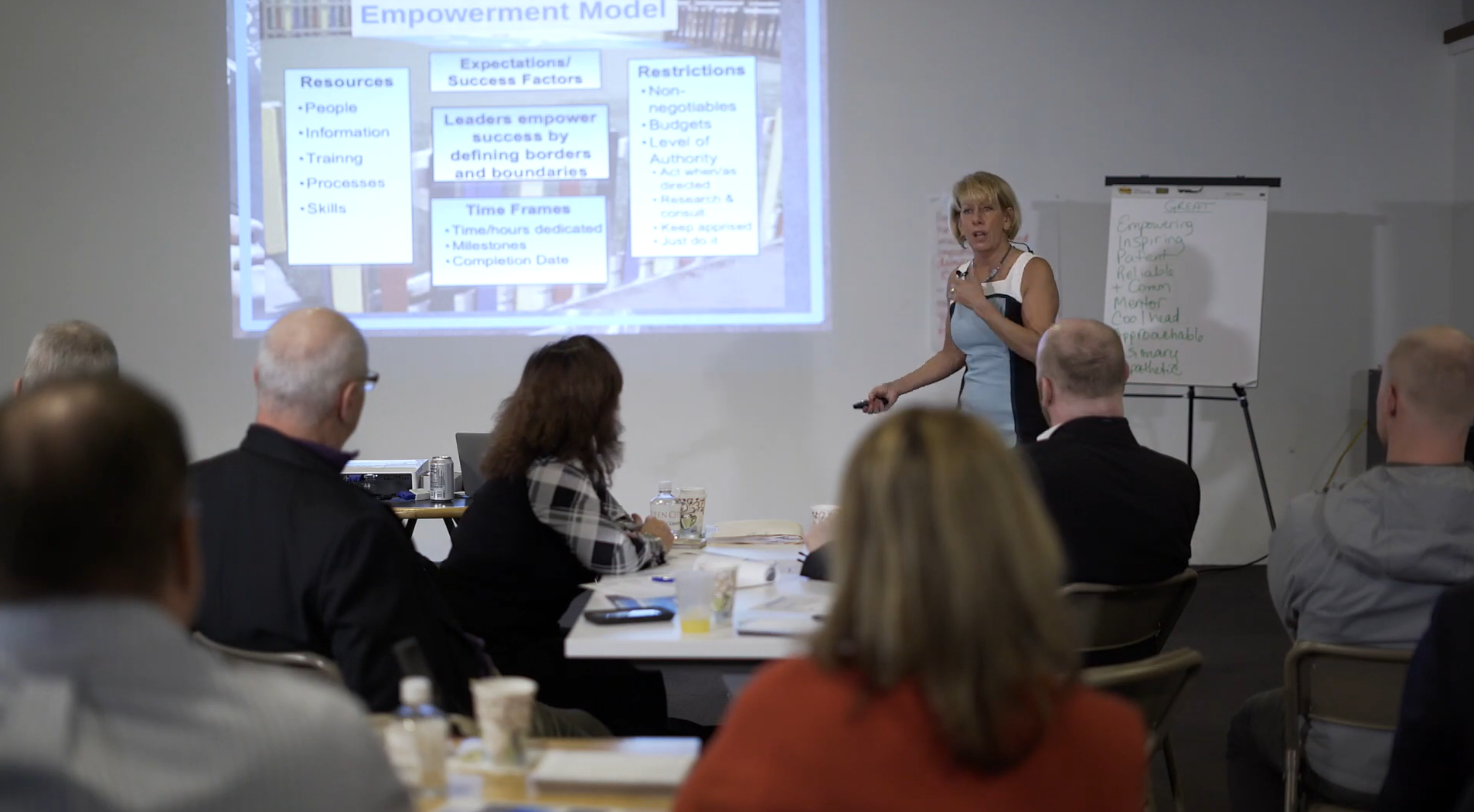
If you’re asking yourself, “Why is my company experiencing high turnover?” It’s not compensation. It’s not the workload. And it’s rarely about chasing a dream job with nap pods and cold brew on tap.
The No. 1 reason people leave their jobs is because of their boss. Especially if the turnover is after 90 days. (If most of your turnover is in the first 90 days, it was probably a bad hire, or misfit for the role. After 90 days, it’s frequently because of the direct supervisor.)
It might sound overly simple, but ask anyone who’s left a role where they excelled. Nine times out of ten, it wasn’t about the job itself — it was about how they were managed. So if your high performers are walking out the door, it's time to look a little closer at your leadership.
Here at The Metiss Group, we help small and mid-size businesses just like you develop their leaders and keep their top performers. Our service, The Leadership Essentials Playbook™, covers eight essential leadership skills and is for both new and seasoned leaders.
In this article, we’ll discuss:
- The Real Reason Behind the Exit
- The Cost of Mistrust in Delegation
- Why One-on-One Meetings Aren’t Optional
- Feedback Shouldn’t Be Rare or Vague in the Workplace
- Why Leadership Development Is the Solution
The Real Reason Behind Your Company’s High Turnover
Top performers thrive on clarity, recognition, and growth. They want to feel like their work matters and their manager is invested in their success.
When that’s missing — when they’re left to guess what’s expected, or they’re consistently overlooked — they disengage.
Many managers were promoted because they were strong individual contributors, not because they know how to lead people. Without the right tools, even well-intentioned leaders can create environments where top talent flounders. They may over-manage, under-communicate, or avoid the very conversations that could keep someone engaged.
The Cost of Poor Delegation
Many managers hesitate to delegate not because they’re control freaks, but because they’ve never been taught how to set clear borders and boundaries while still ensuring the work gets done right. They worry the project will go off track, miss deadlines, or fall short of expectations. So they hold on to the work themselves—not out of ego, but out of fear.
But here's the trade-off: when a manager won’t let go, employees feel boxed in. They sense the lack of trust, and over time, they stop asking for more and stop growing.
Effective delegation isn’t about disappearing. It’s about creating a framework: outlining the desired outcomes, defining what “done well” looks like, agreeing on milestones, and then stepping back enough to let the employee lead. That clarity— paired with confidence — builds both performance and trust.
One-on-Ones Meetings Aren’t Optional
If your managers treat one-on-ones as calendar filler — or worse, as something to reschedule every week — they’re missing the point.
One-on-ones are a key opportunity to build trust, set direction, and understand what motivates each individual. These conversations should go beyond status updates. They should explore what’s working, what isn’t, and what support the employee needs to be successful.
Without consistent one-on-ones and a focus on the relationship, employees will never reach high performance.
Feedback Shouldn’t Be Rare or Vague in the Workplace
High performers want to improve. What they don’t want is silence or feedback that’s so generic it feels meaningless.
Managers must learn to deliver feedback that is frequent, timely, specific, and tailored to the style of the direct report. Some direct reports need more direct feedback in order to hear it, while others need the feedback to be delivered a bit softer.
Giving effective feedback doesn’t mean turning every conversation into a performance review. It means addressing issues when they happen and recognizing wins in the moment.
Waiting until a quarterly review to bring up concerns—or offer praise—doesn’t help anyone. People want to know where they stand. When feedback is consistent and grounded in observable behavior, it becomes a tool for development rather than a source of anxiety.
Similarly, course corrections are most effective when they come from a place of clarity and respect.
A good leader doesn’t avoid tough conversations. They approach them as a way to build trust, not erode it.
Leadership Development Is the Solution to High Turnover
If you’re seeing your top talent exit, it’s not just about improving culture. It’s about improving leadership.
Most managers want to do better, but they haven’t been shown how. They’re operating without a playbook, trying to guess their way into being effective leaders while balancing competing priorities.
This is why we created The Leadership Essentials Playbook™ at The Metiss Group. It gives managers clear, actionable guidance on the fundamentals: delegation, one-on-ones, feedback, and more. It’s not about adding to their workload—it’s about helping them lead in a way that keeps your top performers engaged, supported, and motivated to stay.
Now that you understand why your company is experiencing high turnover, the next step is to understand workplace feedback vs. criticism so your leaders can know how to properly guide their direct reports to success.






















